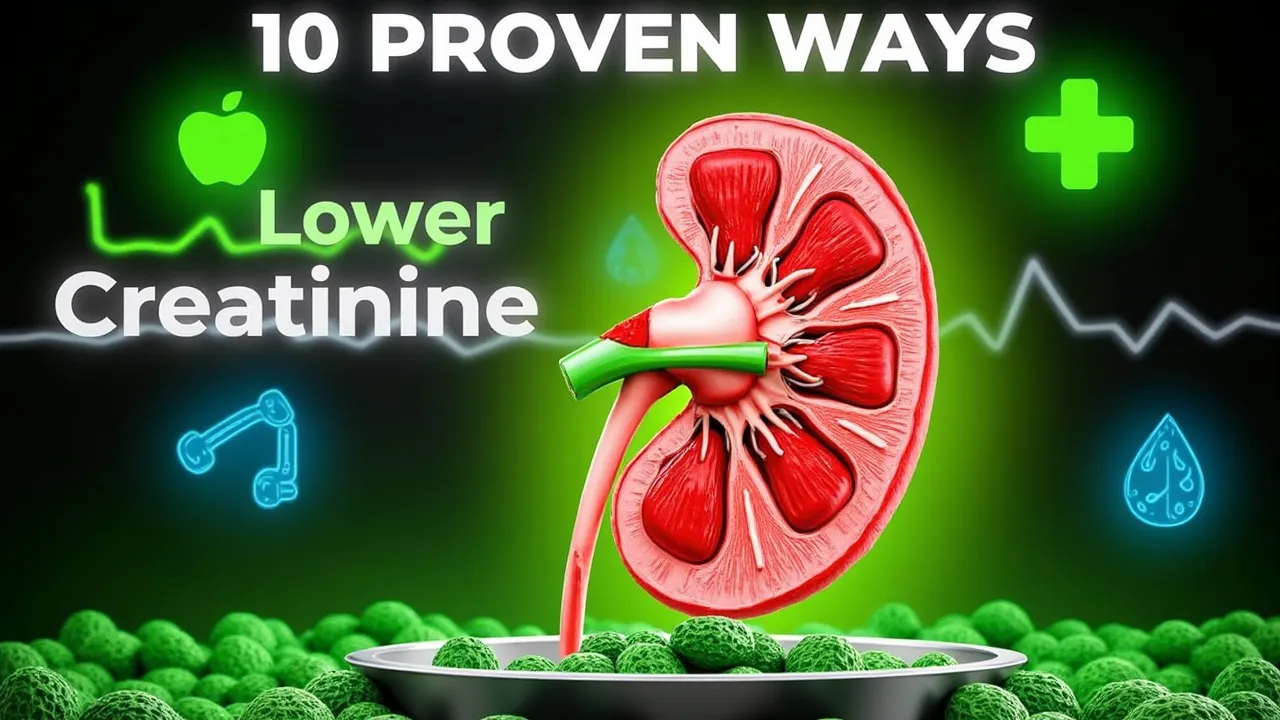Medically Reviewed and Compiled by Dr. Adam N. Khan, MD.
Understanding Your Creatinine Levels
When you get blood work back and see a high creatinine number, it’s natural to feel a bit of a sting in your chest. You might wonder, “What did I do wrong?” or “Are my kidneys failing?” First, take a deep breath. Creatinine is a wast
Medically Reviewed and Compiled by Dr. Adam N. Khan, MD.
Understanding Your Creatinine Levels
When you get blood work back and see a high creatinine number, it’s natural to feel a bit of a sting in your chest. You might wonder, “What did I do wrong?” or “Are my kidneys failing?” First, take a deep breath. Creatinine is a waste product that comes from the normal wear and tear on the muscles of your body. Everyone has it.
Your kidneys act like a high-end filtration system for your blood. Their job is to grab that creatinine and flush it out through your urine. When your kidneys aren’t running at 100%, or when you are putting too much stress on your body, those creatinine levels start to climb.
In this guide, we aren’t just looking at numbers on a page. We are looking at a roadmap for your long-term health. Lowering creatinine isn’t just about a quick fix; it’s about changing the environment inside your body so your kidneys can do their job without struggling.
1. Re-Evaluate Your Protein Intake
We’ve been told for years that protein is the king of nutrients. While it’s true that we need it for muscle repair, too much of the wrong kind can be a heavy lift for your kidneys. Red meat, in particular, contains creatine (which turns into creatinine when cooked).
When you eat a large steak, you are essentially dumping a massive amount of work onto your kidneys all at once.
- The Fix: Try swapping red meat for plant-based proteins like lentils, beans, or tofu a few times a week.
- Why it works: Plant proteins are often easier for the “filters” in your kidneys to process and don’t produce the same level of metabolic waste.
2. Master the Art of Hydration
Dehydration is one of the most common causes of a temporary spike in creatinine. Think of your kidneys like a water slide; if there isn’t enough water, things get stuck and move slowly. However, there is a “Goldilocks” zone. You don’t want to drink so much that you flush out vital electrolytes, but you need enough to keep the flow steady.
- Watch the color: Your urine should look like pale lemonade. If it looks like apple juice, you need more water.
- Avoid Soda: Dark colas contain additives like phosphorus that can further stress the kidneys. Stick to filtered water or herbal teas.
3. Be Careful with Intense Exercise
If you are a “gym rat,” your creatinine might be naturally higher. Because creatinine is a byproduct of muscle metabolism, pushing your muscles to the absolute limit creates more waste. If you have an upcoming blood test, heavy weightlifting or sprinting 24 hours before can give you a “false high” reading.
- The Balance: You don’t have to stop working out. Just focus on more moderate activities like walking, swimming, or yoga if you are actively trying to bring your levels down.
4. Increase Your Dietary Fiber
Fiber isn’t just for digestion; it’s a secret weapon for kidney health. Studies have shown that people who eat more fiber tend to have lower creatinine levels. Fiber helps the body eliminate toxins through the digestive tract, which takes some of the “workload” off the kidneys.
- Top Picks: Berries, apples, whole grains, and leafy greens.
- The Goal: Aim for 25 to 30 grams of fiber a day. It’s a slow-and-steady way to clear the pipes.
5. Check Your Medicine Cabinet (NSAIDs)
Many of us reach for Ibuprofen or Naproxen the moment we have a headache or back pain. These are known as Non-Steroidal Anti-Inflammatory Drugs (NSAIDs). While they are great for pain, they can be “kidney killers” if used too often. They restrict blood flow to the kidneys, which can cause creatinine to spike almost instantly.
- The Alternative: Talk to your doctor about using Acetaminophen (Tylenol) for pain, as it is generally filtered through the liver rather than the kidneys. Always consult a professional before changing your meds.
6. Watch Your Salt Intake
Salt is a major driver of high blood pressure, and high blood pressure is the second leading cause of kidney damage. When you eat too much sodium, your body holds onto water, and the pressure in your delicate kidney vessels rises.
- Hidden Salt: Most of our salt doesn’t come from the shaker; it comes from processed foods, canned soups, and frozen dinners.
- Pro Tip: Use herbs like oregano, garlic, and lemon juice to flavor your food instead of reaching for the salt mill.
7. Manage Your Blood Sugar
Diabetes is the number one cause of kidney issues. High blood sugar acts like “shards of glass” in your bloodstream, damaging the tiny filters (nephrons) in your kidneys over time. If those filters are scarred, they can’t get rid of creatinine.
- Consistency is Key: Keep your blood sugar stable by eating complex carbs and avoiding sugary snacks that cause “spikes and crashes.”
8. Herbal Support (With Caution)
Some natural supplements have been used for centuries to support kidney function. Salvia, for example, is a popular herb in traditional medicine that may help increase the rate at which kidneys filter out waste. Stinging nettle is another herb often cited for its “flushing” properties.
- Safety First: Never start a supplement without asking your doctor. Some herbs can actually interact poorly with kidney medications.
9. Get Quality Sleep
Your body does its best “cleaning” while you sleep. Your kidney function is actually regulated by your sleep-wake cycle. Chronic sleep deprivation puts the body in a state of stress, raising blood pressure and making it harder for the kidneys to recover from the day’s work.
- The Routine: Aim for 7–8 hours. Try to go to bed at the same time every night to keep your internal “filtration clock” on schedule.
10. Limit Alcohol and Smoking
Both of these habits force your kidneys to work overtime. Smoking damages blood vessels throughout the whole body, reducing the flow of fresh blood to your kidneys. Alcohol is a diuretic that can lead to dehydration, which—as we mentioned earlier—is a direct cause of high creatinine.
The Big Picture: Why This Matters
Your kidneys are quiet workers. They don’t usually scream for help until things are quite far along. By monitoring your creatinine and taking these ten steps, you aren’t just “fixing a number”—you are ensuring that you have the energy and health to enjoy your life for years to come.
Lowering creatinine is a holistic process. It’s about how you eat, how you move, and how you treat your body’s internal systems.
Frequently Asked Questions
- Can high creatinine be reversed? In many cases, yes. If the cause is dehydration or diet, levels usually return to normal quickly. If the cause is chronic, these steps can help prevent further damage.
- Is a high creatinine level always bad? Not necessarily. Very muscular people or those on high-protein diets often have higher baseline levels. Context matters!
Medlifeguide give information about also kidney diseases, chronic kidney disease (CKD) and also diet plans for kidney health; reach out to acheive these information for your and your family’s health
Medical Disclaimer
All content published on medlifeguide is intended for informational and educational purposes only and does not substitute professional medical advice, diagnosis, or treatment. Always consult a qualified healthcare provider regarding any medical condition, symptoms, or treatment decisions.

